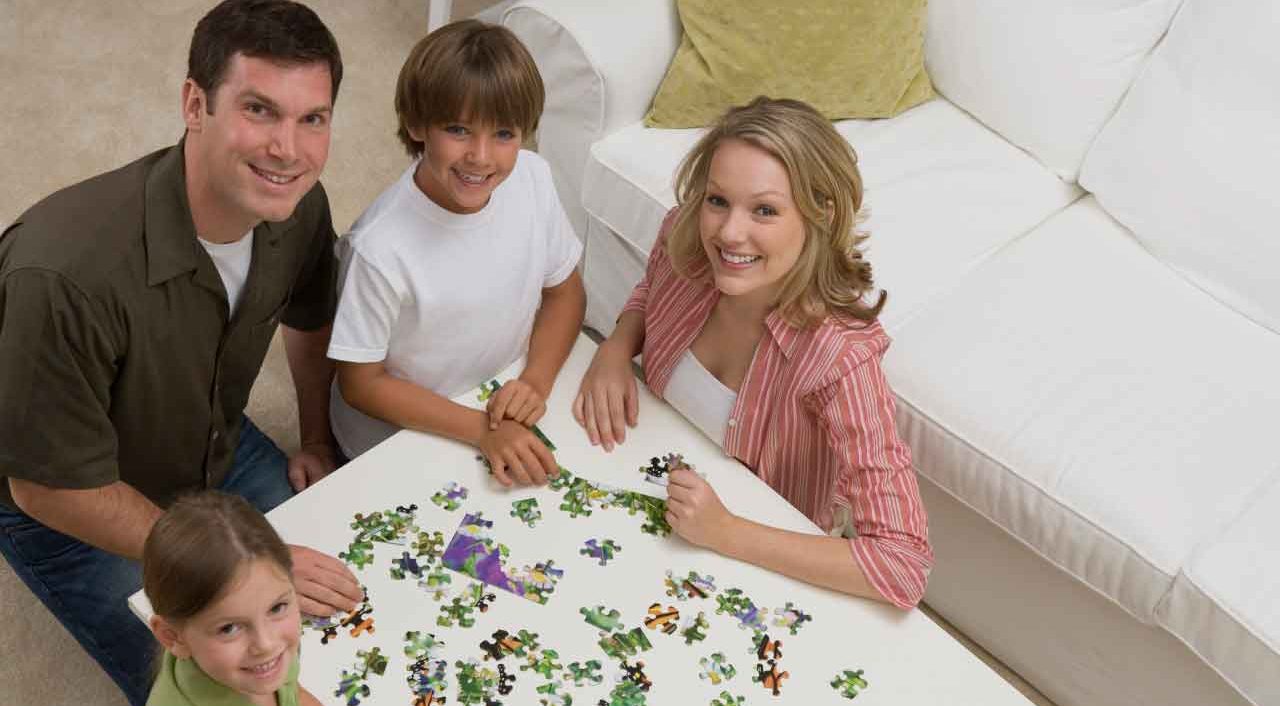February 08, 2016
3 “C Words” to Build Your Child’s Social Skills

Building social skills in childhood is important for lots of reasons – not the least of which is that they predict academic and personal achievement in adulthood. While much socialization happens in school, parents can provide plenty of opportunities at home. In particular, there are three specific areas to focus on – the three “C Words”: collaboration, conflict, and conversation. Each of these terms reflects one domain of social proficiency that parents can develop in simple and effective ways.
YOU MIGHT ALSO LIKE: Has Childhood Become Too Stressful?
Collaboration
Collaboration is a 21st century skill. But it’s not something that is just cultivated once a young adult enters the professional world. Indeed, it can be cultivated at home, starting in toddlerhood. One of the earliest things a child learns in the home is how to work with others. You might not think about it this way, but if you have a toddler, shopping for groceries can become a simple and regular platform for learning how to collaborate. Splitting up tasks (like reading the list to your child and asking him or her to look for apples and bananas) may seem mundane, but it isn’t because you are sharing responsibilities and working together. Same for doing a chore like helping with laundry. Even toddlers can sort based on color – just don’t ask them to fold things perfectly. Having some defined tasks and working together is the essence of collaboration, and this principle applies all through childhood and adolescence. Keep in mind that as kids become more and more capable, so does their ability to collaborate.
What makes for good collaboration, or more specifically, for being a good mentor in collaboration?
- First, be cheerful. Good collaborators like working, and like working with others.
- Second, be constructive. Negativity and criticism sets up a vibe of competitiveness not togetherness.
- Third, solve problems together. Set a foundation of framing some “we” questions (“What food should we shop for next?” “How can we get this house cleaned up in time to go to a movie”?).
Conflict
Conflict is inevitable when you are working, or playing, with others. It’s not necessarily a negative thing, either. Developmentalists have recognized for decades that learning how to resolve conflicts is an essential skill, one that develops throughout childhood and beyond. And it becomes an enormous asset once you are out in the world.
YOU MIGHT ALSO LIKE: Is Your Child Getting the Right Amount of Sleep?
What’s the best way to help children learn how to deal with conflicts in a proactive way? An extraordinary number of studies suggest that authoritative parents foster a number of social abilities, including strategies for pursuing conflict resolution. One of the key ways to achieve this is by modeling and teaching emotion regulation during conflict. Conflicts often spin out of control because negative emotions dominate the social interaction. While authoritative parents hold firm on select rules and standards, they also encourage conversation about the reasons behind the rules and listen to their children’s opinions. Conflicts get discussed, viewpoints get exchanged, and resolutions are arrived at through dialogue, not yelling.
Three tips to keep in mind:
- Try to keep your cool. If your emotions get the better of you, your child will learn that conflict is a battle, not an opportunity to arrive at solutions. Help your child calm down if they get upset before you continue the conversation.
- Be a good explainer and listener. You can hold to your position (e.g., a child is not allowed to eat a cookie before dinner) while explaining rather than yelling, and you can listen and sympathize without giving in.
- If the situation warrants, modify your position in accordance with your child’s propositions. This isn’t giving in if the end point is a better resolution to the problem.
Conversation
Is conversation a lost art in this era of texting and electronic communication? It shouldn’t be, as it is still (and will always be) a key social skill. In fact, parents can promote conversational abilities all the time. Think about being in the supermarket with a toddler. If you are ordering cheese at the deli, it’s likely that your child will be asked if he or she would like a slice. Encourage your child to answer directly. Toddlers are perfectly capable of saying “yes, please” and “thank you.” Socializing them to do this in public, at early ages, gets them in the habit of engaging in simple and meaningful exchanges. Keep in mind that telling your child to “say thank you” doesn’t count unless your child actually says the words themselves. While it’s easy for parents to get in the habit of talking for children, the fact is that they can talk for themselves, and should.
Being out in the world offers endless opportunities to encourage conversational skills. Children can order for themselves in a restaurant, can answer a doctor’s questions, and can learn to speak appropriately when you are at a friend’s house. They can also learn to ask questions of others too – that helps them understand that conversation is not just an opportunity to talk about themselves but to learn about others. And, of course, time at home is a time for lots and lots of good conversation.
Three tips to facilitate a blossoming conversationalist:
- Practice good listening and expect your child to listen as well. Simply indulging your child’s talk will help them learn to speak, but listening may become a challenge.
- Encourage them to give specific answers to questions. “Good” is not a great answer to “How was school today?” – so ask them to expand, and even change your questions to promote more expansive answers (“What was your favorite part of the day today?”).
- Turn off the devices now and then. We’ve all become attached to our devices, which are conversation killers. Set some time every day (such as dinner time) when everyone puts away the electronics and just talks to each other.
YOU MIGHT ALSO LIKE: 3 Ways to Promote Creativity Through Art-Based Play


